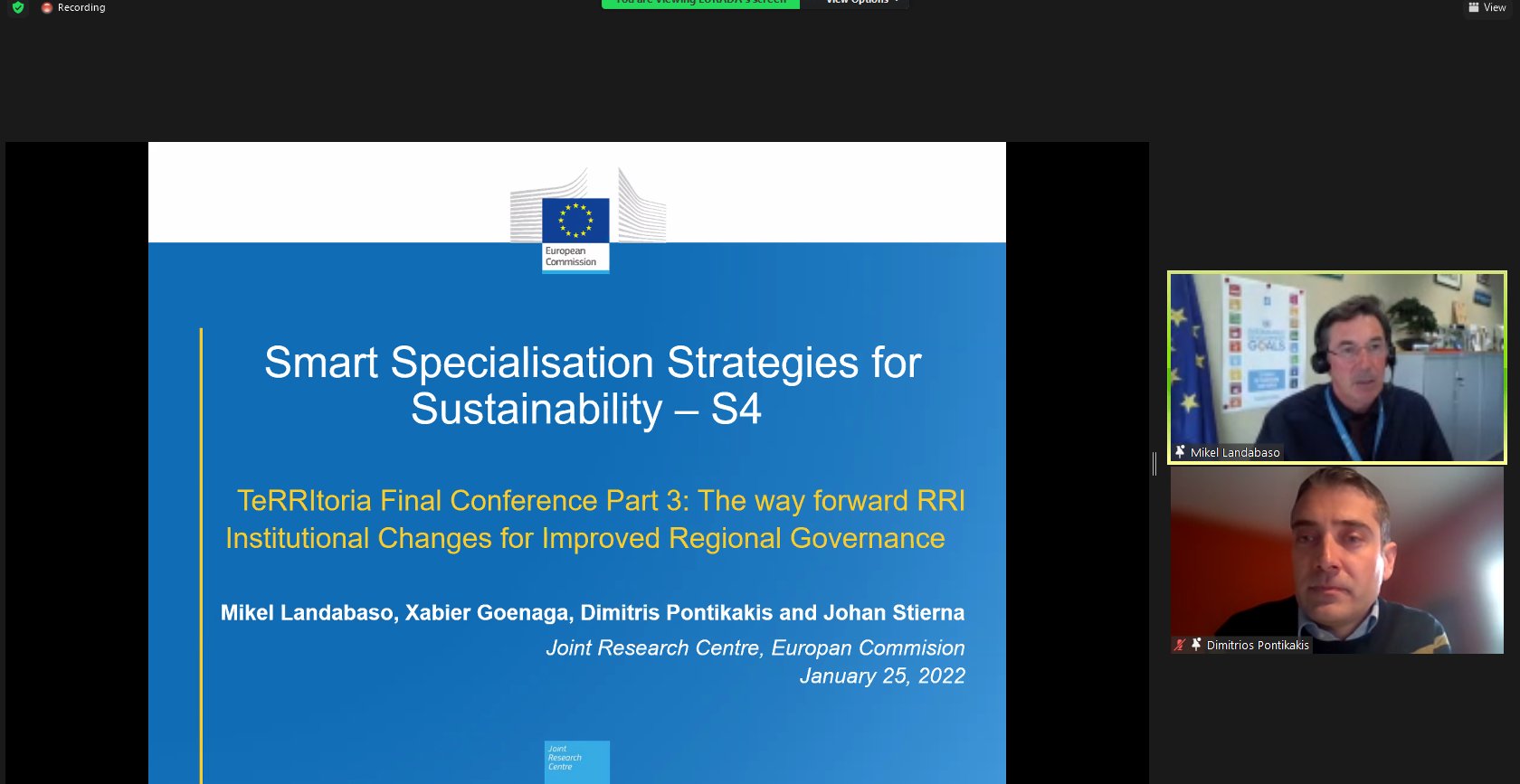Inventory of 43 RRI Governance Innovation Practices
In 2017-2018, the project “Big Picnic” organised dozens of co-created outreach exhibitions in, among other venues, botanical gardens. The purpose of this was to establish public debate on food security issues and allow participants to share their views on Responsible Research and Innovation (RRI) in this field with peers, scientists, and policymakers.
This is just one example of the 15 projects from Europe and beyond selected to be highlighted in Deliverable 3.2 of TeRRItoria, a task overseen by TeRRItoria consortium member SEERC. This document provides an inventory of 43 RRI Governance Innovation Practices (RRIGIPs) from those projects, with the aim of identifying innovative RRIGIPs which can provide valuable insights for designing and implementing the five transformative experiments foreseen as part of TeRRItoria.
Moving a step further from the scope of these experiments, this inventory also draws valuable conclusions that form a set of suggestions which can be employed to aid European actors in further and more genuinely facilitating an efficient RRI uptake in their organisational mechanisms. The aforementioned RRI practices were selected within a solid thematic and theoretical framework and through a thorough methodological procedure. This procedure consisted of four complementary stages through which, out of 80 initial projects, 15 projects were selected and 43 corresponding practices were placed in the inventory. These projects and practices refer to the different RRI keys (Gender Equality, Science Education, Public Engagement, Open Access, and Ethics), as well as to the RRI-unified approach (or ‘RRI package’), where there is a comprehensive package of measures that aim to integrate RRI holistically and without an explicit focus on any specific key(s). A qualitative, reflexive thematic research approach was also employed so as to analyse the 43 practices in even more depth and detect patterns in the data collected, that is to say, in the practices promoting RRI.
After the analysis, during the fourth and final stage, a new synthesis emerged with its conclusions referring to the trends in the implementation practices of the various RRI keys. For instance, in relation to the RRI-unified approach there are both theory-oriented and practice-oriented approaches. In the former category, a usual procedure is the investigation of the current RRI situation in a specific field (conducting a literature review, examining RRI discourse) or the creation of an exemplar implementation plan or an RRI framework (e.g. the RESPONSIBLE INDUSTRY framework). In the latter case, various RRI-related experiments and action plans actually take place, resulting in new governance structures and in institutional transformations in the engaged Research-Funding and Performing Organisations (RFPOs; e.g. FIT4RRI, FOTRRIS). An additional example refers to the key of Gender Equality, where all the RFPOs aiming to achieve gender equality within their organisations develop context-based Gender Equality Plans, which are accompanied by various co-creation practices and usually result in the creation of toolkits with inspiring examples (e.g. EQUAL-IST) or in various sets of policies and guidelines (e.g. STAGES guidelines).
Some broader conclusions after the completion of Deliverable 3.2 and of the RRIGIP inventory, are undoubtedly that RRI aims to foster reflexive societies and is always context-dependent, hence the need for developing self-tailored RRI plans and profiles based on each organisation’s structure and needs.
You can find the inventory of the 43 RRI Governance Innovation Practices (RRIGIP) by clicking here.





